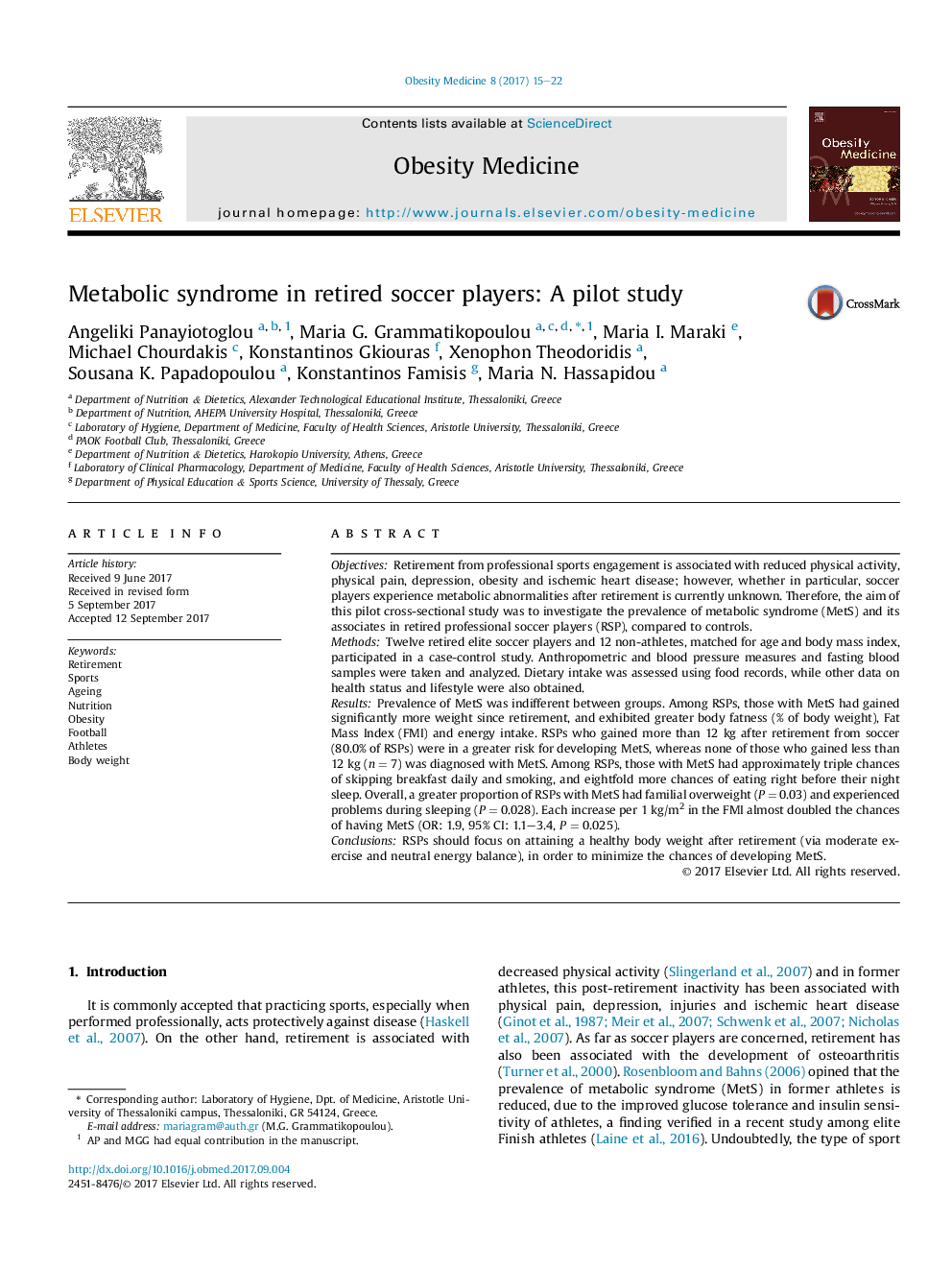| Article ID | Journal | Published Year | Pages | File Type |
|---|---|---|---|---|
| 5123756 | Obesity Medicine | 2017 | 8 Pages |
â¢RSPs who gained more than 12 kg after retirement from soccer exhibited increased chances of having MetS.â¢None of the RSPs who gained less than 12 kg was diagnosed with MetS.â¢RSPs with MetS had almost triple chances of skipping breakfast and smoking, and eightfold more likely to eat right before sleep.â¢Each increase per 1 kg/m2 in the Fat Mass Index almost doubled the chances of having MetS.
ObjectivesRetirement from professional sports engagement is associated with reduced physical activity, physical pain, depression, obesity and ischemic heart disease; however, whether in particular, soccer players experience metabolic abnormalities after retirement is currently unknown. Therefore, the aim of this pilot cross-sectional study was to investigate the prevalence of metabolic syndrome (MetS) and its associates in retired professional soccer players (RSP), compared to controls.MethodsTwelve retired elite soccer players and 12 non-athletes, matched for age and body mass index, participated in a case-control study. Anthropometric and blood pressure measures and fasting blood samples were taken and analyzed. Dietary intake was assessed using food records, while other data on health status and lifestyle were also obtained.ResultsPrevalence of MetS was indifferent between groups. Among RSPs, those with MetS had gained significantly more weight since retirement, and exhibited greater body fatness (% of body weight), Fat Mass Index (FMI) and energy intake. RSPs who gained more than 12 kg after retirement from soccer (80.0% of RSPs) were in a greater risk for developing MetS, whereas none of those who gained less than 12 kg (n = 7) was diagnosed with MetS. Among RSPs, those with MetS had approximately triple chances of skipping breakfast daily and smoking, and eightfold more chances of eating right before their night sleep. Overall, a greater proportion of RSPs with MetS had familial overweight (P = 0.03) and experienced problems during sleeping (P = 0.028). Each increase per 1 kg/m2 in the FMI almost doubled the chances of having MetS (OR: 1.9, 95% CI: 1.1-3.4, P = 0.025).ConclusionsRSPs should focus on attaining a healthy body weight after retirement (via moderate exercise and neutral energy balance), in order to minimize the chances of developing MetS.
